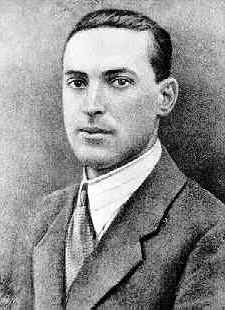Lev Vygotsky (Lev Semyonovich Vygotsky)

Lev Semyonovich Vygotsky (Russian: Лев Семёнович Вы́готский or Выго́тский, born Лев Симхович Выгодский [Lev Simkhovich Vygodskiy], November 17 [O.S. November 5] 1896 – June 11, 1934) was a Soviet psychologist, the founder of an unfinished theory of human cultural and bio-social development commonly referred to as cultural-historical psychology, the prominent advocate for the new theory of consciousness, the “psychology of superman”, and leader of the Vygotsky Circle (also referred to as ‘Vygotsky-Luria Circle’). Lev Vygotsky’s main work was in developmental psychology, and he proposed a theory of the development of “higher psychological functions” that saw human psychological development as emerging through interpersonal connections and actions with the social environment. During the earlier mechanistic and reductionist “instrumental psychology” period of his career (1920s) he argued that human psychological development was mediated by signs that he viewed as psychological equivalent of instrument use in human labor and industry. In the later, the “holistic” period of his career (first half of 1930s), Vygotsky got increasingly influenced by the systemic thinking of the scholars associated with German-American Gestalt psychology movement. It was during this period that he–under the influence of Kurt Lewin’s “Topological (and vector) psychology”–introduced the vague notion of the “zone of proximal development” and identified play of young children as their “leading activity”, that he understood as the main source of the preschoolers’ development in terms of emotional, volitional and cognitive development.
During his lifetime, Vygotsky’s ideas were controversial within the Soviet Union. As early as in mid-1920s Lev Vygotsky was introduced in the West where he remained virtually unknown until the early 1980s when the popularity of the developmental psychology of Jean Piaget (1896-1980) among the educators started to decline and, in contrast, Vygotsky’s notion of the “zone of proximal development” became a central component of the development of new paradigms in developmental and educational psychology. A Review of General Psychology study, published in 2002, ranked Vygotsky as the 83rd top psychologist of the 20th century and the third (and the last) Russian on the top-100 list after Ivan Pavlov and Vygotsky’s longtime collaborator Alexander Luria. The early 21st century has seen scholarly reevaluations of the popular version of Vygotsky’s legacy (sometimes termed “Vygotsky cult”, “the cult of Vygotsky” or even “the cult of personality around Vygotsky”), which is referred to as the “revisionist revolution in Vygotsky Studies”.
Born
- November, 17, 1896
- Orsha, Belarus
Died
- June, 11, 1934
- Moscow, Russia
Cemetery
- Novodevichy Cemetery
- Moscow, Russia

